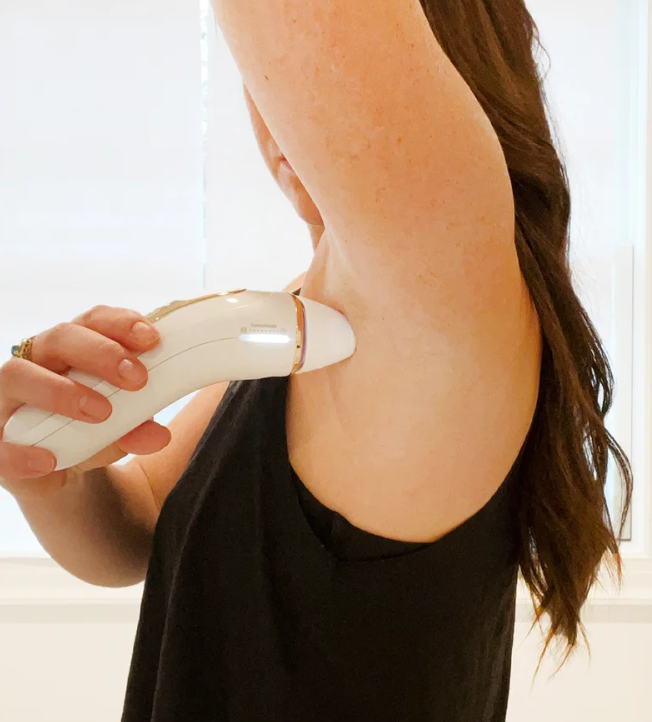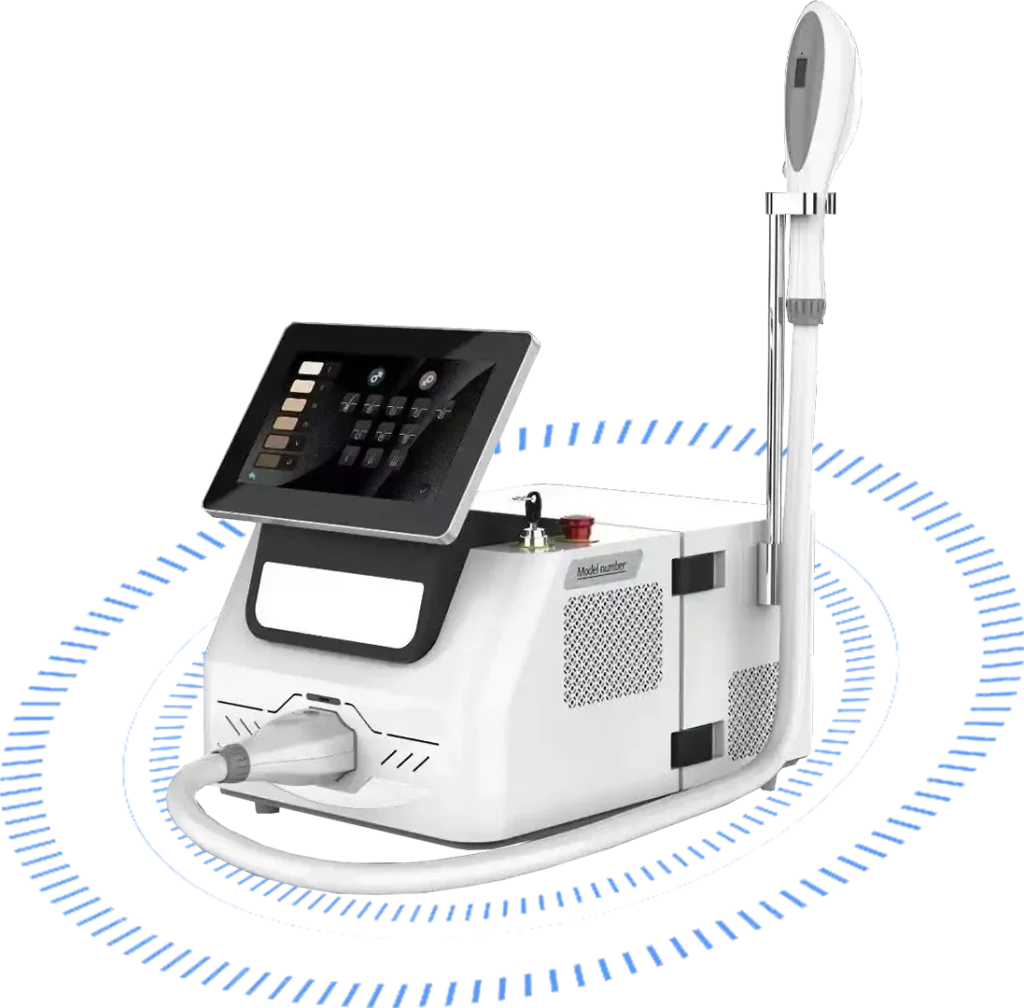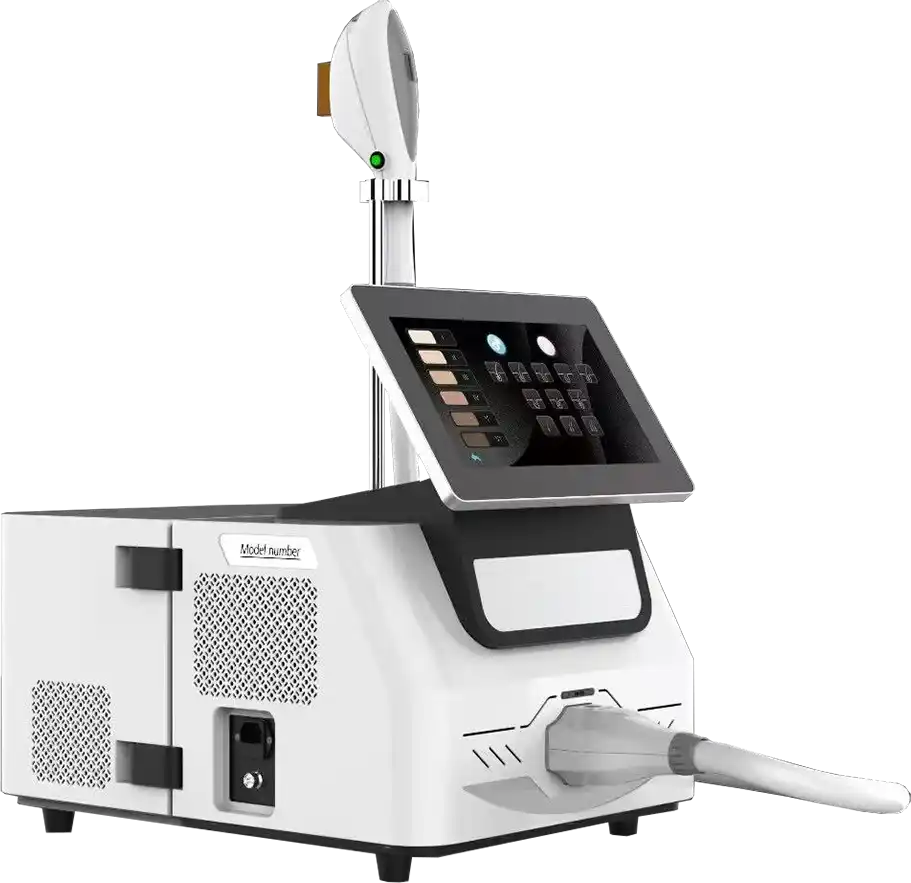How Often Should I Use IPL at Home?
How Often Should I Use IPL at Home? A Realistic Guide from a Clinic-Grade Manufacturer
If you’ve just bought an at-home IPL handset, you’re probably staring at the box thinking one thing:
“How often should I actually use this so it works—without frying my skin?”
As a team that designs clinic-grade IPL systems every day, we get this question a lot from both professionals and end users. There’s a sweet spot between “too often” (hello, irritation) and “not often enough” (hello, stubborn hair). This guide is here to help you find it.
The Short Answer: Your IPL Schedule in One Look
For most at-home IPL hair removal devices, a safe, effective pattern looks like this:
- Initial phase:
1–2 sessions per week for 8–12 weeks - After that:
Maintenance every 1–3 months, or when you see regrowth - Never:
Use IPL every day on the same area
This isn’t just our opinion. Many major at-home brands recommend using IPL once or twice per week in the beginning, then spacing sessions out after the first 2–3 months. RoseSkinCo.
The exact numbers change a little from brand to brand, but the pattern is the same: consistent, not constant.

Why IPL Frequency Matters So Much?
To understand how often to use IPL hair removal, you need to know what IPL is actually doing.
IPL (Intense Pulsed Light) targets melanin in the hair follicle. It’s most effective when the hair is in the anagen (active growth) phase. Not all hairs are in this phase at the same time, which is why one session can’t magically clear everything.
If you treat too rarely, you keep missing those “growth windows”.
If you treat too often, you don’t give skin enough time to recover—and you’re not hitting more hairs, you’re just hitting the same tissue again and again.
The goal of a good home IPL hair removal schedule is to:
- Catch as many hairs as possible in the growth phase
- Let the skin cool down and repair between sessions
- Build results over weeks, not days
A Practical Home IPL Treatment Schedule
Think of your IPL journey in two phases.
1. The Initial Clearing Phase (Weeks 1–8/12)
Most people will get the best results with:
- Frequency: 1–2 times per week
- Duration: 8–12 weeks, depending on device and body area
- Passes: 1–3 passes per area, following the device manual
Several big home IPL brands recommend something within this range—either once a week for 12 weeks or twice a week for about 6–8 weeks.
What you can expect:
- Weeks 1–3: Slower regrowth, some patchy shedding
- Weeks 4–8: Noticeable reduction; shaving less often
- Weeks 8–12: Many hairs gone or growing back finer and lighter
2. The Maintenance Phase (After Week 8–12)
When regrowth becomes sparse:
- Frequency: Every 1–3 months, or when you see new hair
- Goal: Maintain smoothness, not “start from zero” again
Some brands suggest monthly sessions for a few months, then moving to every 2–3 months.

Can You Use IPL Every Day?
Short answer: No—please don’t.
Daily or near-daily use on the same area does not speed up results. In fact, it can:
- Increase the risk of redness, burns, blisters or swelling
- Trigger post-inflammatory hyperpigmentation (dark marks)
- Make your skin more photosensitive and uncomfortable
Brands that openly discuss overuse warn that too-frequent treatments lead to irritation without better hair reduction.
If you feel tempted to “zap a little more, just in case”, remember:
Hair biology won’t speed up just because you’re impatient. Give your follicles and your skin time to respond.
Adapting Your IPL Schedule to You
No two bodies are the same. Use these guidelines to tweak your IPL treatment frequency safely.
1. Skin Type & Sensitivity
- Fair to medium skin + dark hair
Usually tolerates 1–2 sessions per week well. Start slower (once a week) and increase only if your skin looks calm after 24–48 hours. - Deeper skin tones or easily irritated skin
Use lower energy settings and longer gaps (e.g., once every 2 weeks), to reduce the risk of burns or pigmentation change.
Always patch-test a small area 24 hours before treating a large zone.
2. Body Area
- Face (below cheekbones only), underarms, bikini:
Hair cycles are faster; you may benefit from the full 8–12 weeks of regular sessions. - Legs, arms, back:
Hair often grows slower; some people get good results with slightly less frequent treatments after the first month.
3. Hair Density and Color
- Coarse, dark hair responds well to IPL. You might see results quickly but still need the full treatment plan for long-term reduction.
- Very light blond, red, grey, or white hair contains little melanin; IPL may have limited effect. In this case, setting realistic expectations is just as important as choosing the right schedule.
Home IPL vs. Professional IPL: What’s the Difference?
If home devices are so convenient, why do clinics still invest in large, powerful IPL platforms?
The main differences are energy, control, and duty cycle.
Professional systems like our OPT IPL Max+ are built for full-day clinical work, with:
- Up to 3000 W IPL drive power
- Large 15×50 mm spot size for fast body treatments
- Stable energy delivery (1–26 J/cm² in SHR mode)
- Advanced cooling designed to work continuously for many hours
Compared with typical home IPL devices, clinic machines can:
- Treat larger areas in fewer passes
- Offer more settings for different skin phototypes and indications
- Perform multiple treatments beyond hair removal (e.g., skin rejuvenation, pigment, vessels) depending on filters and protocols
But that extra power comes with responsibility:
- Treatments must be done by trained professionals
- Parameters are adjusted based on skin type, hair color, medical history
- Protocols are written to balance efficacy and safety for many different clients
So while your home IPL schedule might be 1–2 times per week, clinics may design less frequent but more intensive sessions using professional IPL machines.
When It Might Be Time to See a Professional
Your at-home device is great, but it’s not always the whole story. Consider talking to a clinic if:
- You’ve followed a consistent 8–12 week schedule and still see dense regrowth
- You have very deep skin tones, a history of pigmentation issues, or scarring
- You’re treating large areas and can’t realistically keep up with frequent home sessions
- You want to combine hair removal with skin rejuvenation, vascular or pigment treatment
Clinics using professional IPL platforms—like those built around OPT IPL Max+—can create customized plans that match your skin type, hair pattern, and schedule.
If you run a clinic, medspa, or distribution business, the conversation is different:
You’re not asking “How often should I use IPL at home?” but “How can I deliver safe, consistent results to hundreds of patients every month?”
That’s where devices like OPT IPL Max+ come in: stable energy, smart cooling, and multiple spot sizes designed for real-world workloads.
Safety Check: A Few Non-Negotiables
Whatever device you’re using, keep these rules close:
- Follow the manufacturer’s manual for treatment intervals and energy settings
- Always shave (don’t wax or epilate) before IPL sessions so hair follicles are present but not above the skin
- Avoid sun exposure and tanning before and after sessions; use SPF consistently
- Stop using IPL and speak to a professional if you see blistering, intense pain, or pigment changes
- If you have any medical conditions, skin diseases, are pregnant, or take photosensitizing drugs, get clearance from a dermatologist or doctor first
Bringing It All Together
So, how often should you use IPL at home?
- Aim for 1–2 sessions per week for about 8–12 weeks, then
- Switch to maintenance every 1–3 months,
- And never use IPL on the same area every day.
Think of IPL as a partnership with your body’s rhythm, not a race you can win by spamming more flashes.
And if you’re on the professional side of aesthetics—running a clinic, medspa, or distribution business—and you need a reliable professional IPL machine that can support those long clinic days, explore platforms like OPT IPL Max+, built for stable energy, smart cooling, and real-world results.
Smooth skin is a journey. With the right schedule, a bit of patience, and a device that’s used wisely, you’ll get there—safely.











